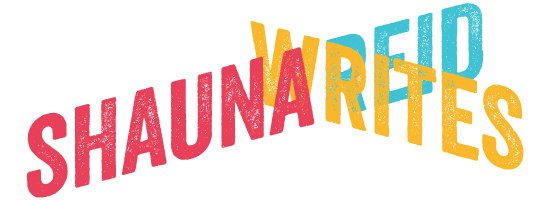On anti-racism
“In a racist society, it is not enough to be non-racist, we must be anti-racist.”- Angela Davis
I first heard this quote last year in Ravideep Kaur’s anti-racism course The Awakening. More recently, in the wake of George Floyd’s murder, and the massive rise in awareness and support for the Black Lives Matter movement, I've been thinking again about what it means to be actively anti-racist. In every sphere of life–from work, community, relationships, hobbies–there are so many places to keep listening, learning, unlearning, and taking action.
What I learned from Ravideep is that we need to start with ourselves. It's about becoming conscious of all the ways racism underscores the world we live in, and understanding how I've benefited from the system as a white person. It's about getting still and quiet with all those uncomfortable feelings. It's not a self-improvement project, but rather a lifelong commitment and practice that's always evolving.
This post may seem out of the blue after twenty years of just wanging on about my travels, ups and downs, dogs and cats and marriage banter. But I feel if I'm going to hang out in a corner of the internet for this long, I need to be clear about my values and what I deeply care about. How else will anyone know what kind of place they've landed on when they stop by?
Any discomfort I've felt about getting the words wrong is nothing compared to what's at stake for others right now. So I want to be clear that I support Black Lives Matter and that I'm committed to keep on deepening my efforts to be actively anti-racist.While I'm here, I wanted to share some resources that I've found hugely helpful.
Leesa Reneée Hall's Inner Field Trip™
I'm currently taking Leesa Renée Hall's Inner Field Trip™ which is available to her Patreon supporters. It's a 10-day virtual journey that uses reflective writing prompts to explore unconscious biases and hidden prejudices. She writes:
"The goal of embarking on an Inner Field Trip™ is to navigate to the deep, dark crevices of your inner being to find your Inner Oppressor – that part of you that wants you to conform to the dominant culture so you stay safe, avoid rejection, and are seen".
Today is Day 7 and it is mega-powerful stuff. The prompts are like laser beams. They prod at all the uncomfortable places. By sitting for twenty minutes, writing stream-of-consciousness style, you end up diving deep and uncovering all the muck that can get in the way. So far we have written on topics like Black women and leadership, weaponised kindness, perfectionism, and deconstructing our privileged identities. Fellow field trippers share their reflections on the Patreon site, which adds to the whole experience and always gets me thinking from different angles. You can find out more on Leesa's website and Instagram.
How to be anti-racist in your freelance creative business by Esme Filsinger
Esme writes:
“So what can you do as a freelancer to be more inclusive, and to elevate the narratives of people of colour without engaging in tokenism? Well my friends, there is plenty."
This blog post has thoughtful and actionable ideas and how to go about them - without centering oneself, and with the knowledge that it will be messy and imperfect. It helped me see my responsibilities and opportunities to do better as a freelancer. Thank you, Esme!(P.S. Esme is a coach who helps creative freelancers find sustainability, and she offers coaching sessions around developing inclusivity in your business.)
Through working behind the scenes on Rebecca Scritchfield’s Body Kindness podcast this past five years, I've heard from so many different voices in the realms of diet culture, health, and eating disorders. One powerful episode was last year’s interview with Dr Sabrina Strings. Sabrina talked to Rebecca about the connections between racism and the origins of fat phobia, and the control of women’s bodies historically and through today’s diet culture.
Having long written in public about my own Body and Eating Stuff (catchy title eh?), I'm learning about the wider picture beyond my own experience; all the layers and connections. How did this diet culture come to be? Who gets access to help for their eating disorders and who doesn't? There's so much to unpack. This conversation is great, as is Dr String's book Fearing the Black Body: The Racial Origins of Fat Phobia.
Nicole Cardoza’s Anti Racism Daily
These daily emails are intended "to keep your anti-racism practice persistent and consistent". Nicole shares anti-racism education and tangible actions in each edition. You can support the massive amount of work that goes into this project with a one-off donation or a Patreon subscription.
The Awakening by Ravideep Kaur
I want to mention this course again because it is a fantastic place to learn. Ravideep lives and breathes her work with wisdom, depth, and heart. She writes:
"I have dedicated my life to this work and genuinely believe that this work has the potential to make the world a better place for both my children and other children of colour."
You can feel that dedication blazing in every single word of the course. Ravideep's unique approach combines anti-racism education with mindfulness techniques and meditations. So throughout The Awakening you learn about overt and covert types of racism, privilege, language, power and more - from a place of staying present, reflecting, and "sitting with the discomfort" as she words it. If you're looking for a teacher to go deep, Ravideep truly rocks.






